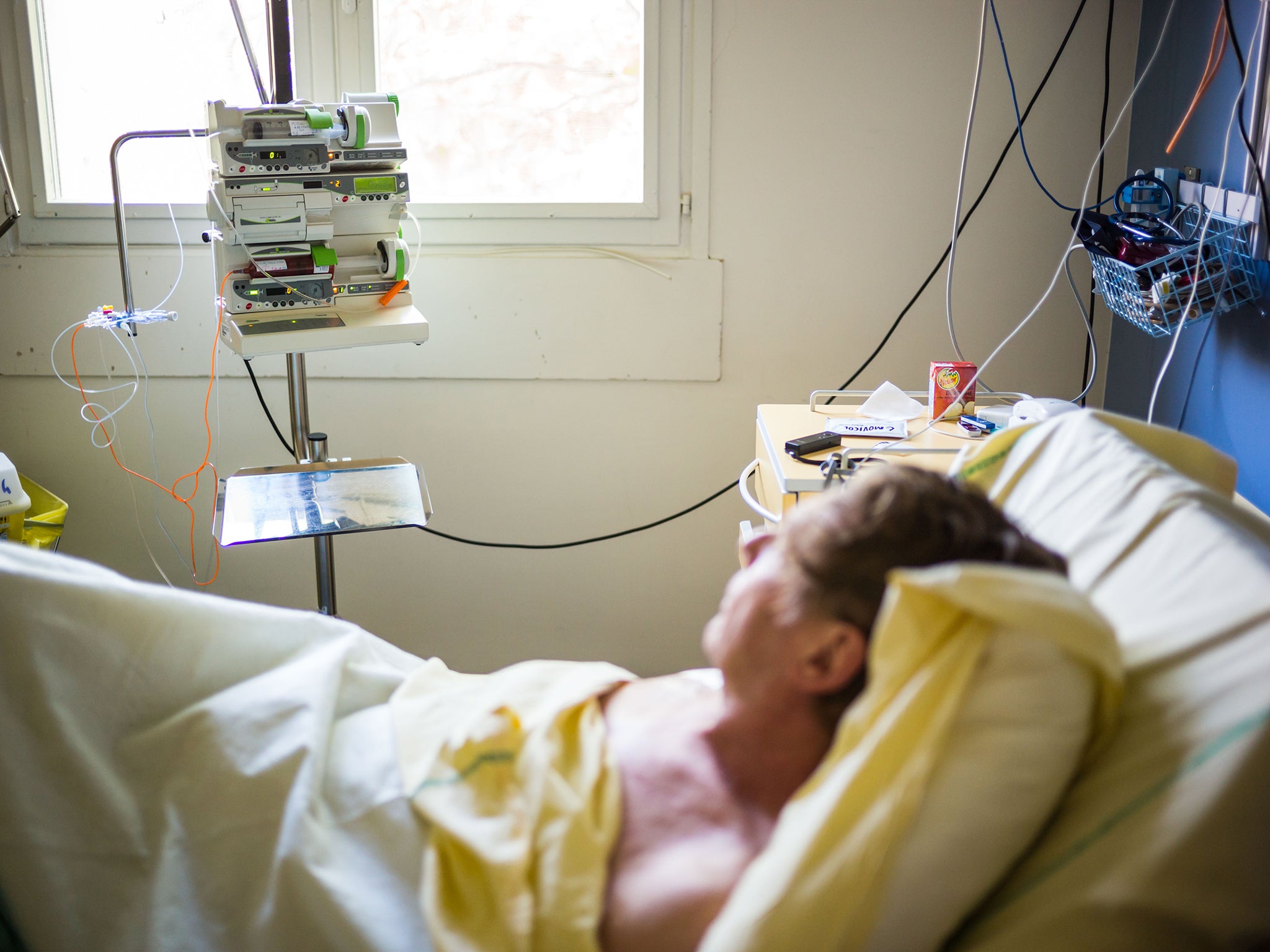Patients with six deadliest cancers 'five times less likely to survive beyond five years'
Survival rates 'unacceptable' for pancreatic, liver, brain, lung, oesophageal and stomach cancer

Your support helps us to tell the story
This election is still a dead heat, according to most polls. In a fight with such wafer-thin margins, we need reporters on the ground talking to the people Trump and Harris are courting. Your support allows us to keep sending journalists to the story.
The Independent is trusted by 27 million Americans from across the entire political spectrum every month. Unlike many other quality news outlets, we choose not to lock you out of our reporting and analysis with paywalls. But quality journalism must still be paid for.
Help us keep bring these critical stories to light. Your support makes all the difference.
Patients with the six deadliest forms of cancer are five times less likely to survive for five years or more compared to patients with one of 11 other forms of the disease, new research has found.
Survival rates for pancreatic, liver, brain, lung, oesophageal and stomach cancer are currently “unacceptable”, according to a new taskforce made up of five charities.
The chance that people with these forms of cancer will live beyond five years is 14 per cent, it said – far below the 64 per cent for people with more survivable cancers, such as breast, prostate and bowel cancer.
Lack of research into rarer and more deadly cancers is one of a number of factors behind this disparity, along with late diagnosis, low awareness of symptoms and a lack of treatment options, said the Less Survivable Cancers Taskforce.
Over the past year, these six forms of cancer received 17 per cent of UK research funding for common cancers, with the remainder of the funding given to the 11 more survivable forms of the disease.
The group, a cooperation between Pancreatic Cancer UK, the British Liver Trust, the Brain Tumour Charity, Action Against Heartburn and Core, a charity fighting digestive diseases, will be formally launched in Westminster today.
John Baron, MP for Basildon and Billericay and chair of the All-Party Parliamentary Group on Cancer, who is sponsoring the launch, said the findings were “very concerning”.
“While over the past 40 years the five-year survival rate has almost doubled for breast cancer and prostate cancer, these six less survivable cancers are more or less as deadly as they were in the 1970s,” he said.
Pancreatic Cancer UK has warned that a lack of new diagnosis methods means the disease will claim an increasing number of lives over the next decade and overtake breast cancer to become the fourth most deadly form of cancer overall.
The disease, sometimes called the “silent killer” as the symptoms are so difficult to spot, will claim an estimated 11,279 lives each year by 2026 – a 28 per cent rise on the 8,817 who died of pancreatic cancer in 2014.
The only live-saving treatment available for pancreatic cancer, whose symptoms include jaundice, abdominal pain, unexplained weight loss and indigestion, is an operation to remove the tumour.
However, in 92 per cent of cases, the cancer is not caught early enough for surgery, meaning it has the lowest survival rate of all cancers.
The six deadliest cancers cause more than half – 51 per cent – of all deaths for common cancers, per year, causing close to 70,000 fatalities, according to the new taskforce.
Subscribe to Independent Premium to bookmark this article
Want to bookmark your favourite articles and stories to read or reference later? Start your Independent Premium subscription today.
Join our commenting forum
Join thought-provoking conversations, follow other Independent readers and see their replies
Comments